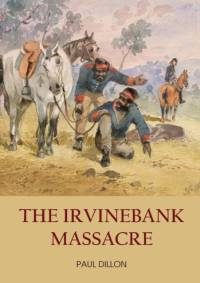Om The Irvinebank Massacre
On the evening of 18 October 1884, a group of at least five Aborigines, were sitting round a camp fire boiling the billy and yarning in blackfellow talk when they were fusilladed. Tommy jumped up and ran for it; followed by the thwacks and zings of the bullets as they whizzed after him. The others stayed where they fell. The next day, Alicky, a town blackboy spoke to John Moffat, a leading citizen about the incident, who asked to be shown the campsite.On reaching the camp, a gruesome scene of partially burnt Aborigines confronted the eyes of Moffat. Driven by curiosity and trepidation, he examined the bodies. One was the body of an old blackfellow, the two others were adult females and one was a picaninny whose sex was unknown. The bodies were lying side by side. Two with their heads one way and the other two in the opposite direction. The fire being in the middle of them. There were no observable marks of violence on the bodies other than that caused by the fire. The faces were turned somewhat downwards and it could not be established whether they were disfigured or not.Mr. Mowbray, the Police Magistrate at Herberton was notified. On 23 October 1884, when he arrived in Irvinebank to conduct an inquest on the bodies of the four Aborigines, all that he found was the remains of a large fire. The fire was still smouldering but no bodies were found. Constable Moroney raked the fire and several pieces of bone were recovered from the ashes. But nothing could be identified. Nevertheless, Mowbray held an inquest and suspicion fell on the native police who were in Irvinebank at the time.The Attorney-General then requested the police to investigate the matter. They arrested the Nigger Creek native police including Sub-Inspector William Nichols, and the rest is history.
Visa mer

